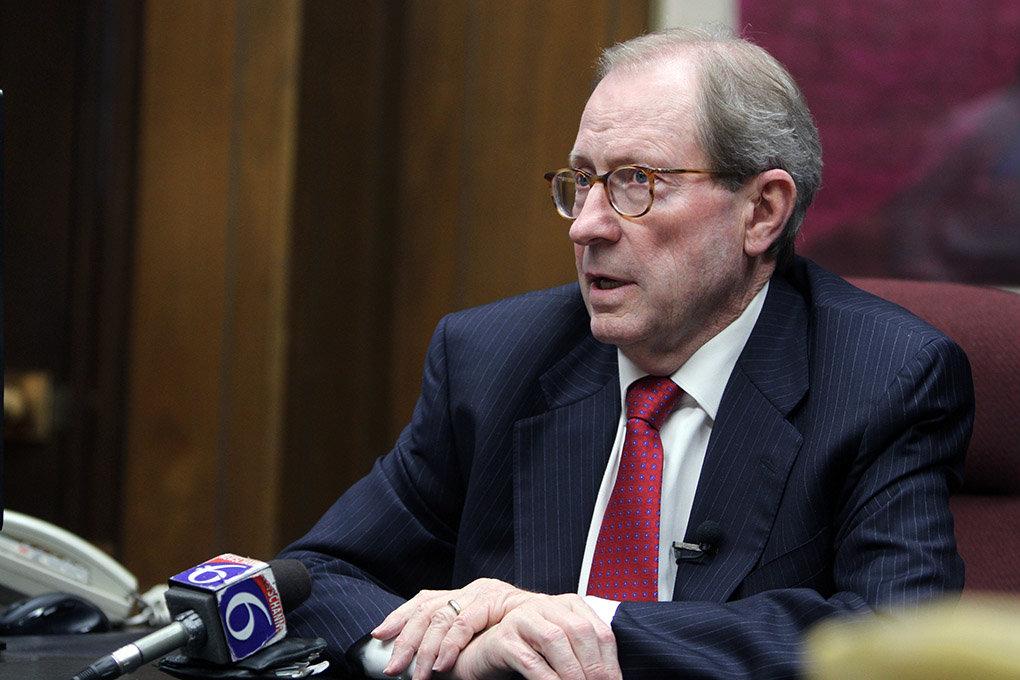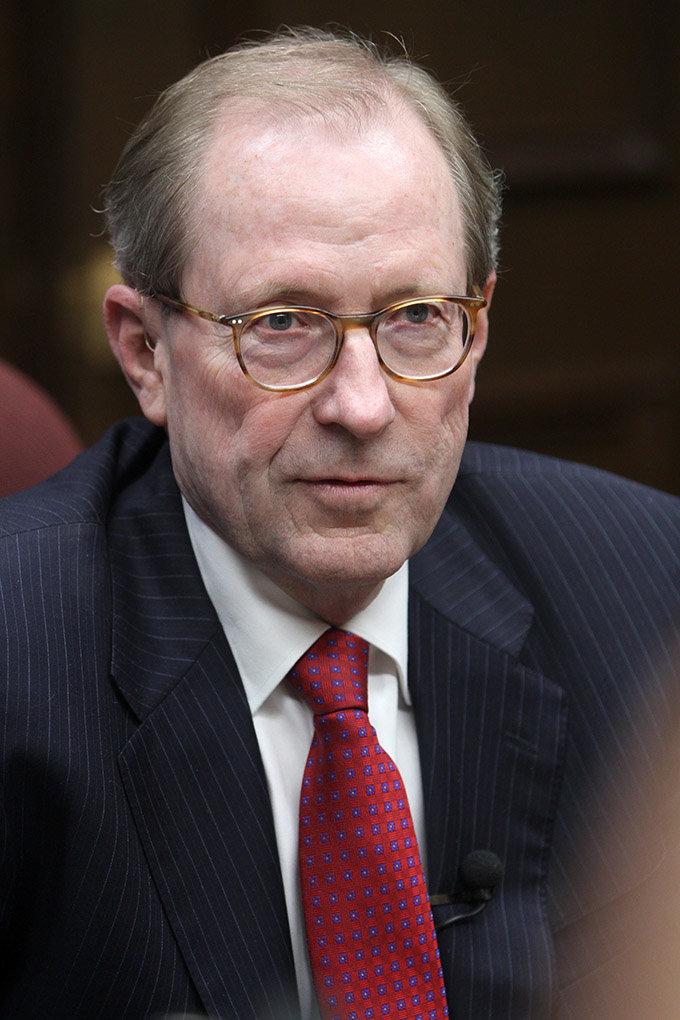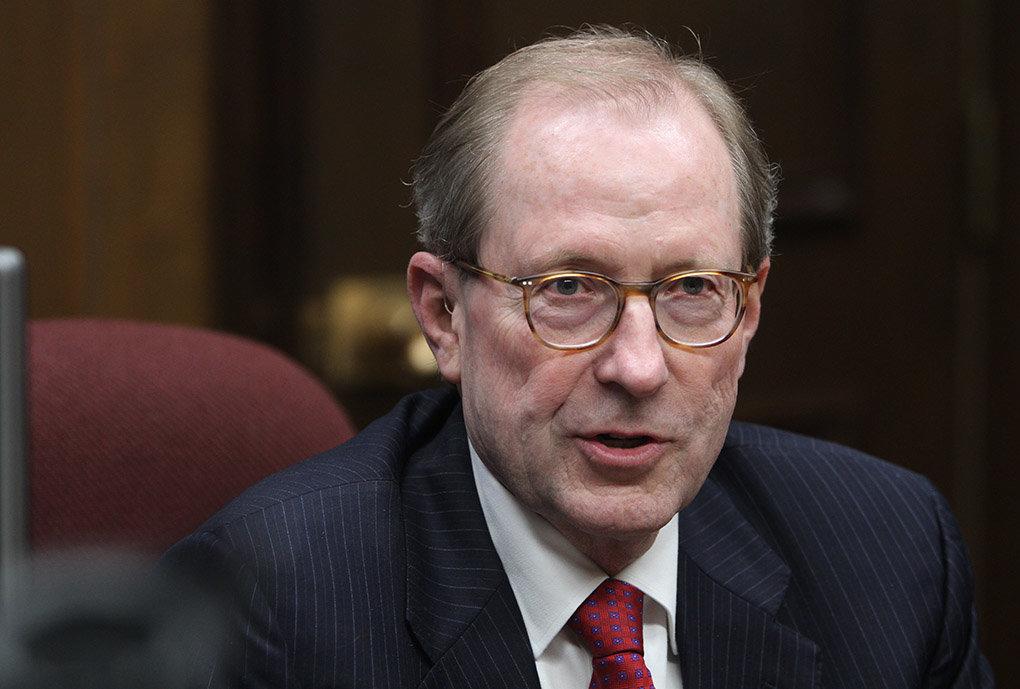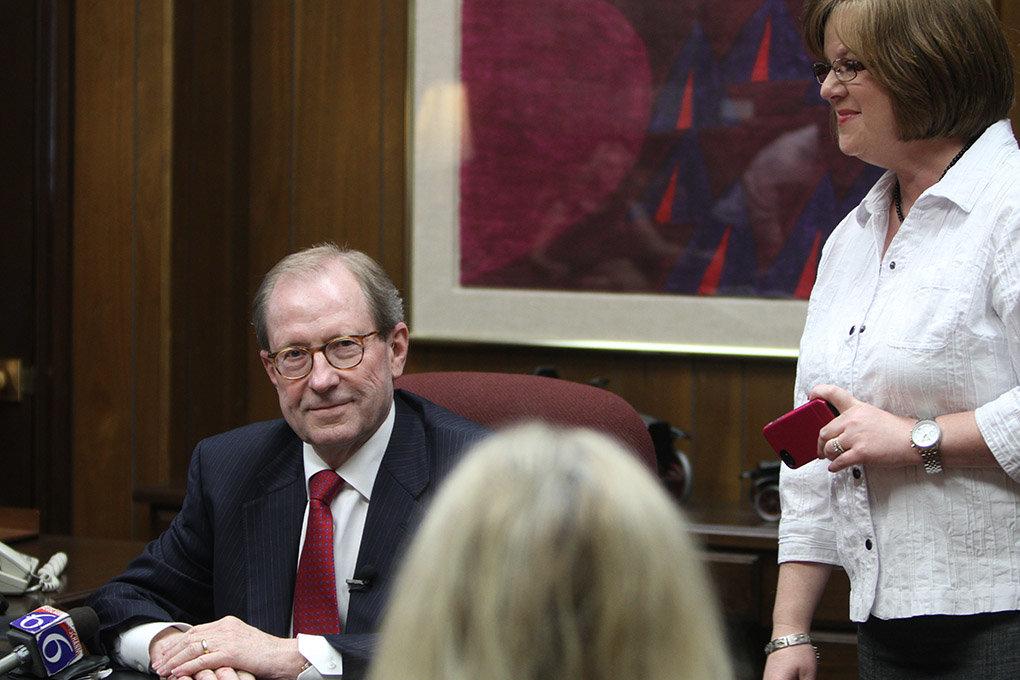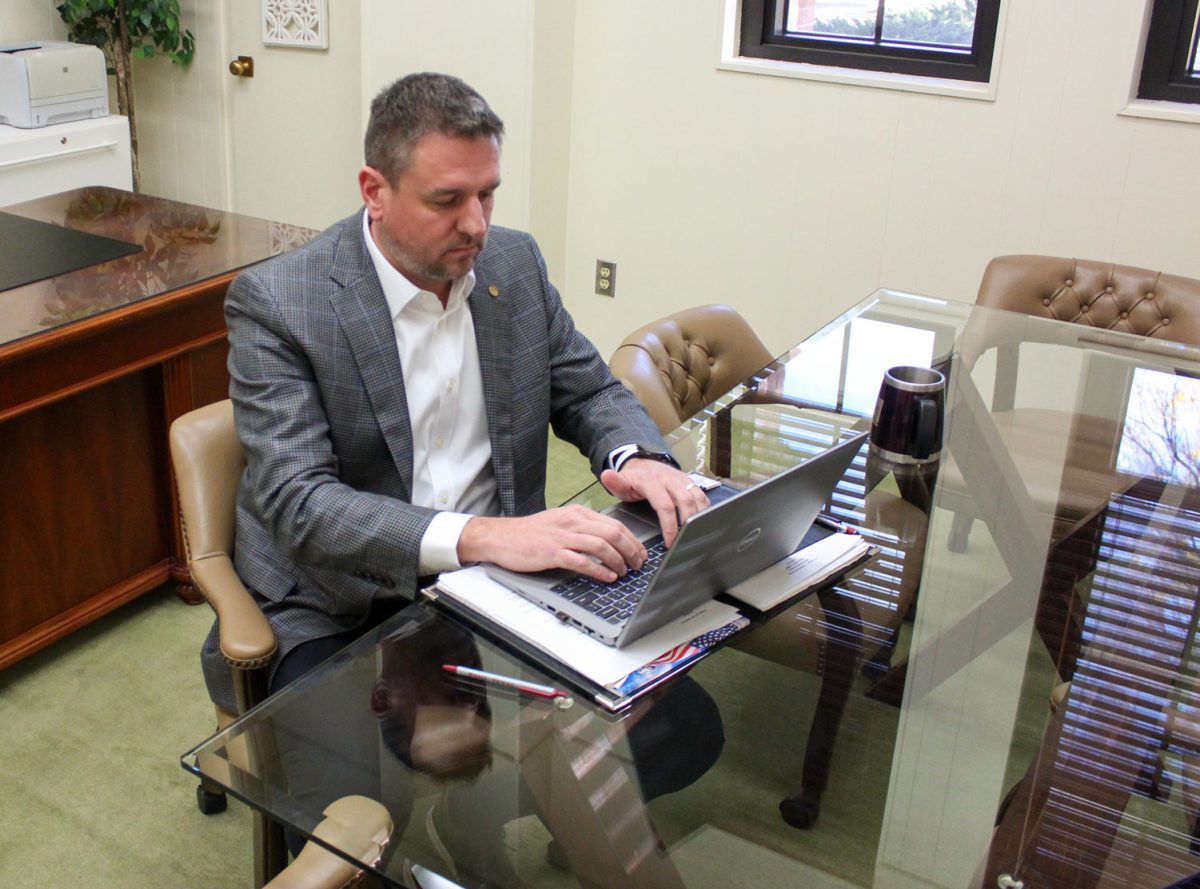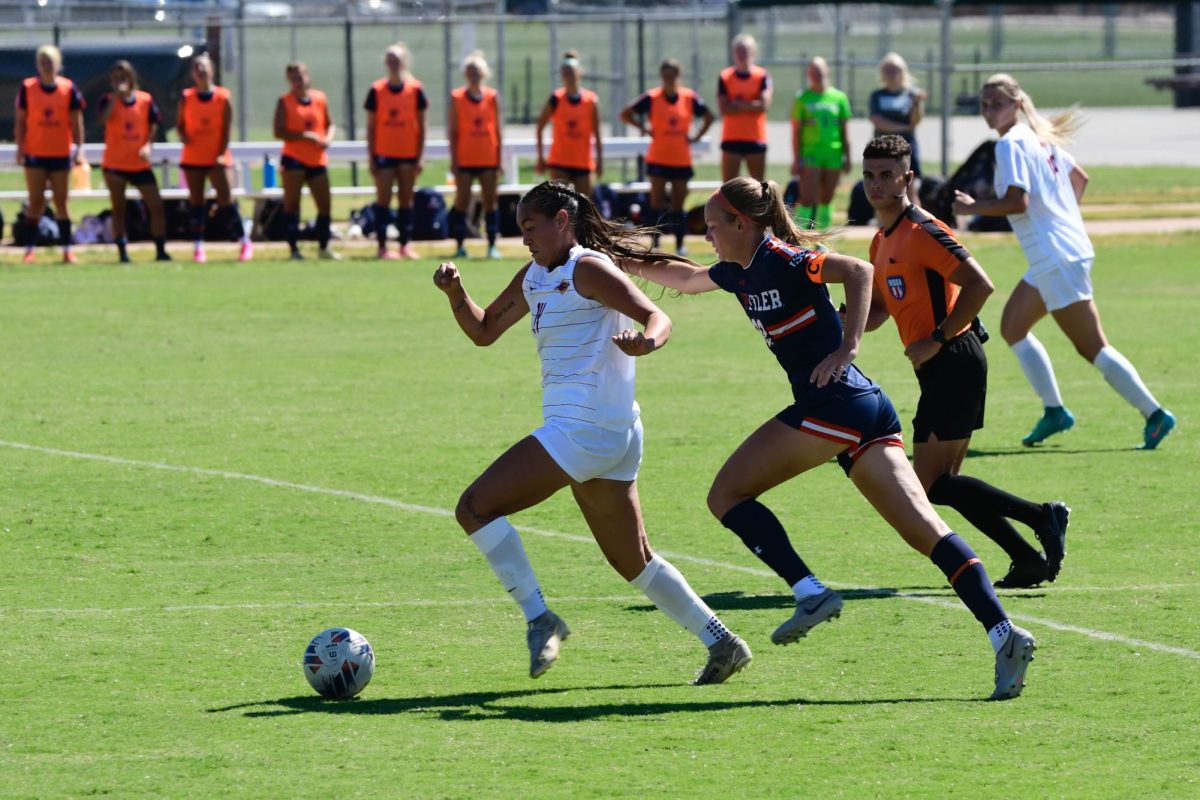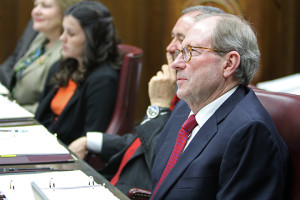
University President Jesse Rogers, who has been the university president since 2001, announced his retirement May 9 to the Board of Regents at a regularly scheduled meeting and in a statement from the university office of public information.
One of the challenges Rogers will face in his final year as university president will be working with the Texas Legislature and soliciting state funding for major building projects.
Robert Clark, vice president for administration and institutional effectiveness, said Rogers’ retirement will not affect the 84th legislative session that begins Jan 13.
“It’s a perfect way for him to go out. He has tremendous experience dealing with the legislature and I think in many ways it can be his last hurrah,” Clark said. “He has enough status down in Austin. He’s highly respected and the legislators know him and what kind of person he is, and if anything it could garner some good things.”
In a press conference after the Board of Regents meeting, Rogers said the changing of one president will not affect his ability to request funding for a new health science building from the legislative session this spring.
“We have boards, we have deans, we have vice presidents here that as a group will carry the mission of the university forward and I believe that we have established an appropriate mission and an appropriate vision that we don’t want to get away from,” Rogers said. “One of the weaknesses of higher education is that the administrations turn over too fast. That has not happened at Midwestern. The continuity of the mission is extremely important and I believe we’re set to do that. I don’t think they will worry about one president leaving. There’s just too many people here who have the same mission.”
Student Regent Shelby Davis, mass communication senior, said Rogers’ retirement wouldn’t have an effect on requesting funds from legislators.
“I don’t think it’ll have a huge effect on the legislative session because he’s planning on being here through August, so it won’t have an effect on the TRBs,” Davis said.
Rogers said one of the university’s goals is to enroll more students while preserving the small size.
“One of the real strengths of this university is the size. I don’t think the board or our faculty want to get away from that mission that we have of knowing our students, of interacting with our students,” Rogers said. “That is something that’s really going to have to be handled over time but I think that it is critical that we retain that vision that we’ve set, and certainly growth is going to change that.”
Rogers said he wants the university to become a bigger part of the city.
“This community needs a larger student body. We have a huge economic impact on Wichita Falls. I would like to see this university become a major center of this city and that the city depends on us in many ways,” Rogers said. “To be very honest with you, I’d like to see it be a college town and I believe we’re getting there. People recognize the university. I love the fact that we’re keeping more and more of our students from around here.”
Matthew Park, dean of students, said Rogers’ played a critical role in securing higher amounts of donor money for the university.
“He has helped transform the nature of giving to the university,” Park said. “We receive nearly the same amount of private gifts as we do from the state.
Park said private gifts are increasingly important as the state continues to grant less funds to higher education.
“It prevents us from raising our tuition and fees to make up the difference,” Park said. “Private giving is a way to do that without putting the burden on students.”
Bill Maskill, head football coach, said Rogers will leave a legacy at MSU, but he said the potential for a football stadium on campus will fall on the next president.
“Dr. Rogers has had a big impact on everybody. He’s touched everybody’s lives on campus, and he’s been very instrumental in our growth and in our program, and obviously we’re going to miss him,” Maskill said.
Upon retirement, Rogers said he wants to stay involved in education whether it’s tutoring or in higher education.
“I’d like to volunteer at a regional service center and get back to my roots and tutor some young people in mathematics or chemistry or physics. I know that they need tutors to help and I’d get a great joy out of that,” Rogers said. “As far as higher education is concerned, there’s always a demand for consulting about accreditation issues and the effectiveness of learning and the management of universities. There’s always a demand for that and agencies that place consultants. After Karen and I are settled I’d like to do something like that.”
Rogers said his more open schedule will give him time to see his granddaughter and travel the country.
“I have a 9-year-old granddaughter, she’s the only grandchild I’ve ever had. When I get a phone call from her saying, ‘Granddaddy, when am I going to come see you?’ I want to see her. Additionally, there’s some parts of this country that I’ve never seen. I really want to see our country and I think Karen and I will be taking some road trips. There’s just some things that I want to do that I think it’s about time for me to get around to doing it,” Rogers said.
At the May 10 spring commencement, Rogers said it felt like just like any other graduation ceremony, but he said that would change as he only has three more as president.
“The last one will be, I’m sure, feel different,” Rogers said. “Not yet. Maybe the last one will. They all are [emotional] in some way.”
STATEMENT
“I plan to retire on Aug. 31, 2015, or such date thereafter that the MSU Board of Regents has announced my successor and he or she has taken office,” the email sent to the campus community read.”Much remains to be done over the next 15 months, including planning for the 84th Legislative session in Austin, which begins in January.”
“By the time of my retirement I will have spent 48 years at Midwestern. I believe that I will be able to say then what I say now: they have been good years and brought me a great deal of satisfaction, professionally and personally. Over the decades, the university has made significant advances, and I have been pleased to have been present to witness them. As for the future, I look forward to a more flexible schedule than now and to pursuing interests long on hold. I will continue to be involved in higher education in one form or another.”
Search
Keith Lamb, vice president of student affairs and enrollment management, said he won’t be certain of Rogers’ role in searching for a new president until the Board of Regents drafts a plan for the selection process, but he said the next president will needs energy and vision.
“We need someone who shares the values of MSU and embraces the mission of MSU,” Lamb said.
Maskill said the discussion to build a football stadium on campus will rely in part on the new president.
“If the new president is athletically minded and has an interest in developing and building, that would be huge from our standpoint,” Maskill said.
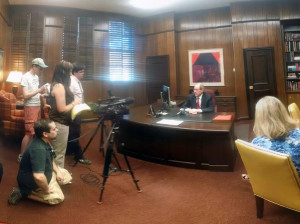
HISTORY
Rogers received his bachelor’s in chemistry from the University of Texas at Arlington and his doctorate in chemistry from Texas Christian University in1967. His research interests, according to his resume, include organic and inorganic electrochemistry. He came to Midwestern State University in 1967 as a professor of chemistry and physics. He became the vice president for academic affairs in 1981 and president in 2001.



